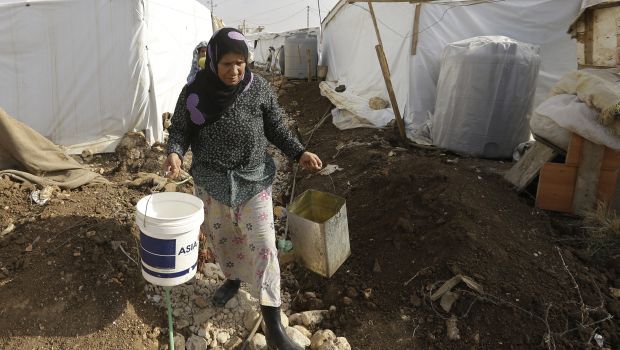
A Syrian woman carries buckets to fill with water at a refugee camp at Delhamiyeh village in the Bekaa valley, eastern Lebanon, Tuesday, Nov. 5, 2013. (AP Photo/Hussein Malla)
A spokeswoman said Amos, head of the UN’s Office for the Coordination of Humanitarian Affairs (UNOCHA), briefed the Council that over 9 million Syrians were dependent on international humanitarian assistance, while the situation inside the country “continues to deteriorate rapidly and inexorably.”
Of the around 9.3 million Syrians the UNOCHA believes relies on international aid, 6.5 million are “internally displaced” within the war-torn country.
In contrast, estimates released by the UN in October said that 6.8 million people were in need of international assistance, with around 4.25 million internal refugees, indicating a sharp escalation of the crisis.
Amos urged the Security Council to secure “help and influence over those parties who can ensure the protection of civilians and civilian facilities, the safe passage of medical personnel and supplies, the safe and unhindered delivery of humanitarian assistance,” according to her spokeswoman.
In a previous briefing on October 25, Amos described the situation as a “race against time” and described the international response on the ground as “severely insufficient.”
In addition to the violence of the ongoing civil war and the dangers of malnutrition, Syrians now face the danger of epidemic disease. A polio outbreak in northeast Syria was confirmed on October 29 by the World Health Organization (WHO), which blamed “under-immunization” for the outbreak. The Syrian authorities announced Monday that they intend to vaccinate all children against the disease.
The UN reports that there are currently over 2.2 million registered Syrian refugees that have fled across the Middle East, with the largest concentrations in Jordan, Lebanon, and Turkey, straining local efforts to cope with the influx.
